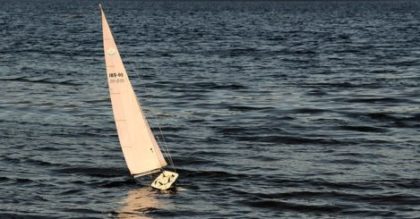
The Fourth of July in Pittsburgh is a big time for boating, what with the three rivers and all that. So this story about citizen scientists contributing their time at sea to science caught my eye. As Aquaman loves to remind us, the surface of the Earth is over 70% water. Yet nearly all of science is conducted on land, making it challenging to know even basic facts of what is happening out in the ocean. The solution here is to recruit volunteers (no press-ganging for this navy) who already spend significant time on the waves and have them collect samples, take measurements, and test equipment. It’s not a perfect solution; folks probably don’t choose their routes randomly, for example, which may introduce biases to the sampling. Still, it’s much better than the alternative of not having any of that data.
Now, I’m guessing not that many of you own a yacht and spend most of your life at sea; after all, very few folks do. But maybe you enjoy water sports on a more casual basis and maybe closer to home. I’m sure there’s plenty more that we can learn about all the bodies of water around us. Perhaps there’s a citizen-scientist project focused on water near you that could use your contributions. And if not, maybe you could start one. It might be an interesting project for your church or small group that could help build scientific literacy among the members. Lakes and streams may not seem immediately connected to science & theology questions, but a project could open up further conversations. One focus of the ocean research is pollution, which introduces issues of stewardship and creation care. Getting up close and personal with the diversity of living organisms in a local ecosystem might lead to discussions about ecology or evolutionary biology. Water and its movement are integral to geology. Even just gaining an understanding of how science is done by doing it oneself is a valuable step towards literacy. And of course the Bible is rich with water metaphors.
While we’re on the subject of oceans, you might want to follow along with ESN contributor Mike Stell and his Great Summer Read through Moby Dick. I’m learning a lot just from his Tweets.
We’re less than a month until the ASA meeting at Gordon College (not far from Herman Melville’s stomping grounds, coincidentally). Don’t forget about the scholarships and discounts available to students. And as an added bonus, the student group bringing the most attendees will win three (3) copies of Faith across the Multiverse. Those may come in handy for a book group this fall; stay tuned.
Obviously the Francis Collins talk will be a big draw, but don’t sleep on other programming highlights including S. Joshua Swamidass’ Friday workshop on Adam & Eve, the ESN track for students and early career academics on Saturday, posters and talks by folks like Julie Reynolds and Ted Davis, and more. If you have a talk or poster, please mention it in the comments below and I’ll flag it up in a future post. I can’t wait to see everyone there!
Andy has worn many hats in his life. He knows this is a dreadfully clichéd notion, but since it is also literally true he uses it anyway. Among his current metaphorical hats: husband of one wife, father of two teenagers, reader of science fiction and science fact, enthusiast of contemporary symphonic music, and chief science officer. Previous metaphorical hats include: comp bio postdoc, molecular biology grad student, InterVarsity chapter president (that one came with a literal hat), music store clerk, house painter, and mosquito trapper. Among his more unique literal hats: British bobby, captain’s hats (of varying levels of authenticity) of several specific vessels, a deerstalker from 221B Baker St, and a railroad engineer’s cap. His monthly Science in Review is drawn from his weekly Science Corner posts — Wednesdays, 8am (Eastern) on the Emerging Scholars Network Blog. His book Faith across the Multiverse is available from Hendrickson.

Leave a Reply